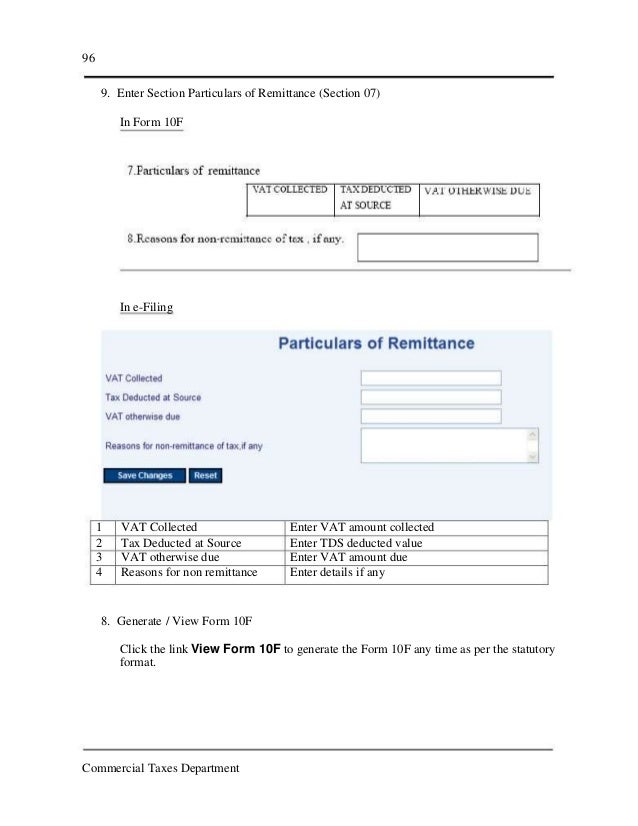
SARS eFiling is the official online tax returns submission portal for the launched originally in 2001 via third-party companies, then expanded and taken in-house by SARS in 2006. In the 2015/2016 tax year SARS eFiling processed 36.80 million electronic submissions and payments which equates to 98.7% of all submissions and payments to SARS in. SARS eFiling provides free services to individual taxpayers, trusts, companies and tax practitioners to submit tax returns, submit declarations and make relevant payments in an online environment. The eFiling service is of an international standard and is comparable to online tax submission services offered in the,,,,.
SARS no Longer Sending VAT Declaration Forms If you are waiting for SARS to send you your VAT return or to tell you that the form is available one-filing, keep waiting—it’s not going to arrive on its own. SARS introduced several changes to the value-added tax (VAT) vendor declaration form on 11 April 2011 in its bid to 'modernise”. In a letter to VAT vendors, it said that 'vendors need to note that from 11 April 2011, all VAT submissions are required to be on the new VAT 201 form,including any submissions for periods prior to March 2011”. What SARS’ VAT changes mean for businesses The most significant change says Colin Wolfsohn, the chair of the South African Institute of Chartered Accountants (SAICA) southern region tax committee, and a member of the SAICA national tax committee, is that SARS will no longer post VAT 201 forms—and even those who are e-filing are not going to be getting notices that the return is automatically there. The vendor will now have to request the return. SARS will also not accept returns printed from e-filing being submitted manually. To get manual returns, he says,you can phone SARS or go to your local SARS branch and request the form, and SARS will then post it to you.
Applying on e-filing is instantaneous.Other changes SARS has introduced, says Wolfsohn, include: •The format of the return; •A unique payment reference number (PRN), which will be pre-populated by SARS; •Extra information required, such as the demographics of the person completing the form,resulting in it taking more time to complete the return; and •The declarant's signature is now needed on the form. When submitting a return with your payment, the new cut off time for cheque payments is at 15h00 on the due date, the due date would be the 25th of the month; alternatively, if the 25th is a weekend or public holiday, then the last working day before that. Also, from 1 May 2011, the maximum amount of a cheque that SARS will accept for VAT payments is up to R100 000.If your turnover is more than R30 million per annum, or more than R2.5 million a month, you are obliged to e-file and pay electronically. Wolfsohn said that SAICA supports the move to e-filing, as it is faster, more efficient, returns don't get lost, and there is the added advantage that if you file one-filing, you get additional days to submit your returns and pay VAT i.e.
Until the last day of the month.If you are still clueless, SARS’ e-filing website has a step by step guide explaining how to complete the new VAT returns manually or by e-filing.The message that SAICA is trying to get out to vendors is the need to request your VAT returns early, and don't forget to do so to avoid penalties and interest for late submission. Who needs to fill in a VAT return? Anyone registered with SARS as a VAT vendor is required to submit a return.One is liable for compulsory VAT registration when they have taxable supplies in excess of R1 million in any 12-month consecutive period, but a person may also choose to register voluntarily, provided that the minimum annual threshold of R50 000 (as from 1 March 2010) has been exceeded in the past 12-month period. Source: By Monique Vanek (Tax breaks). Buklet na temu moya semjya lyrics.